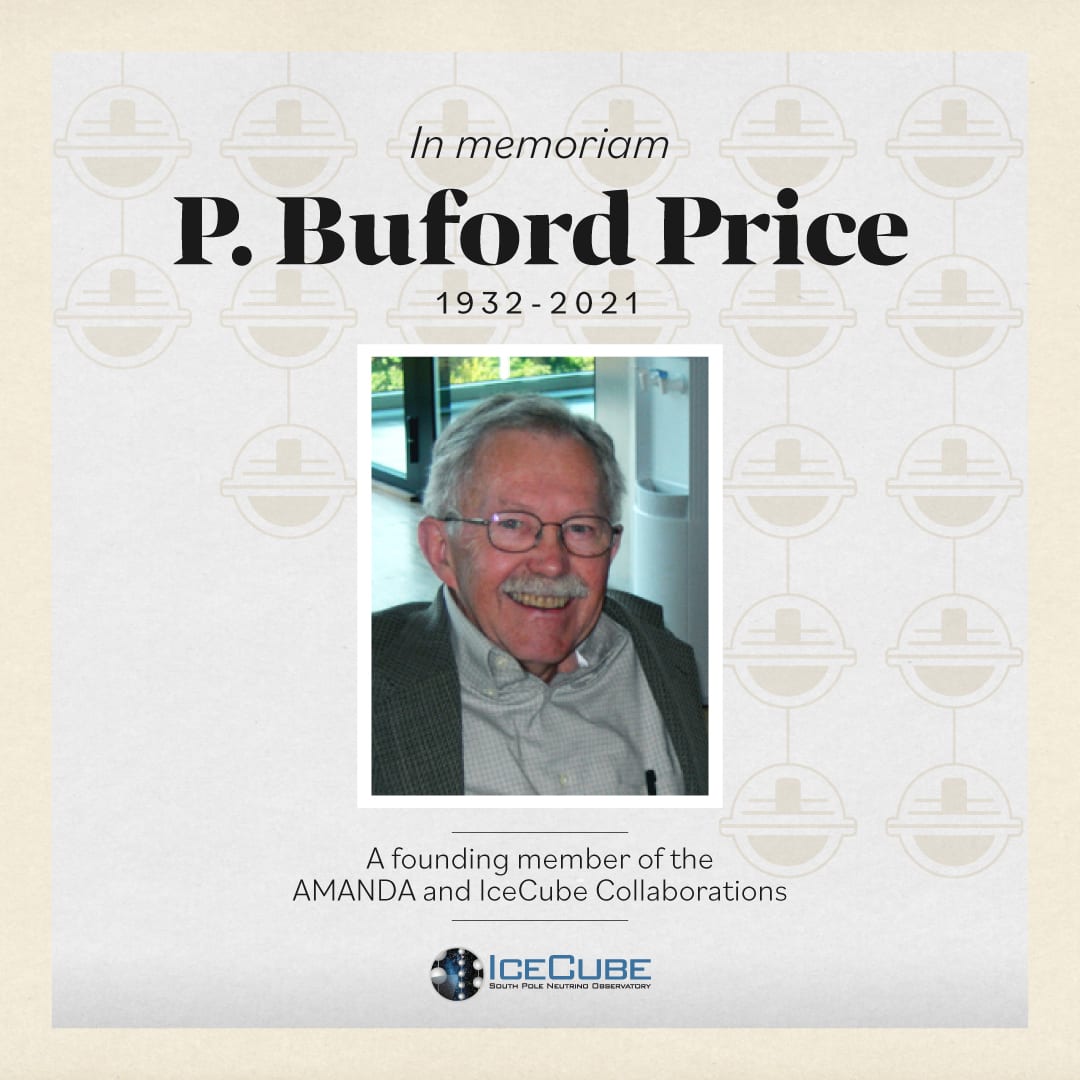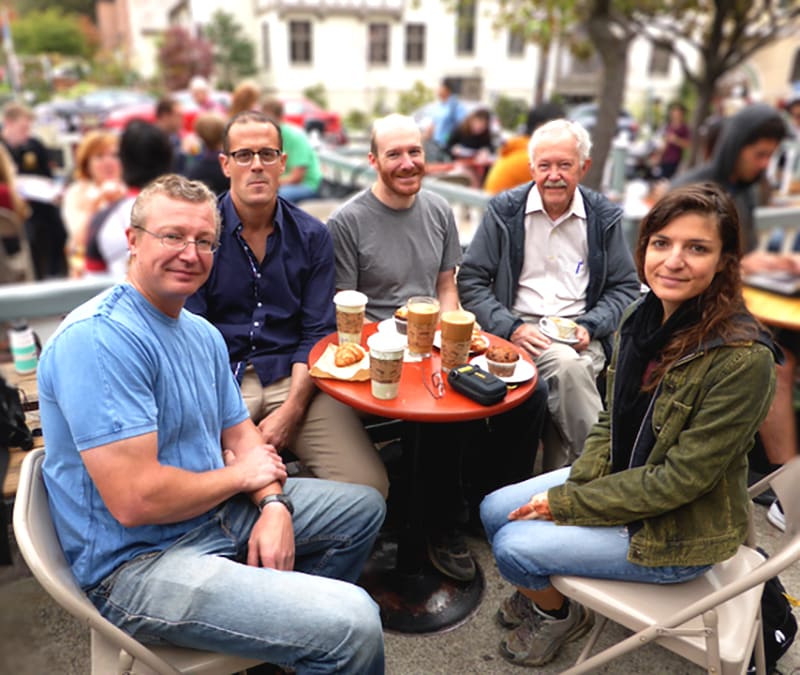
On December 28, 2021, P. Buford Price, a professor of physics at the University of California, Berkeley and a member of the IceCube Collaboration, passed away.
Buford, who defined himself as an experimentalist who liked to develop projects that cross traditional disciplinary boundaries, was a founding member of the AMANDA project and collaboration, which demonstrated the detection of muons using Greenland ice as a detector.
In the early 1990s, when AMANDA was taking shape, Buford had already established a very distinguished career centered on developing techniques for observing the tracks of charged particles in solids, for which he received the Ernest Orlando Lawrence Award. A well known result of his work in this field was the invention of Nucleopore filters, together with Robert L. Fleischer and Robert M. Walker, which are widely used in microbiology to trap specific cells, even viruses, from fluids.
It was his approach to the physics of solids that proved that AMANDA first, and IceCube years later, could operate below 1,400 meters unimpaired by light scattering from bubbles in Antarctic ice. Those air bubbles had been found during the early operation of AMANDA, at depths between 800 and 1000 meters, and left unresolved would have changed the history of neutrino astronomy.

In fact, the study of the ice was one of his many interests and passions. He and his group developed instruments to study the polar ice down to the bedrock, which allowed them to map microbial life and volcanic records as a function of depth in deep ice. Finding remains from the Toba volcano eruption 74,000 years ago within IceCube’s instrumented volume played an important role in designating the South Pole as the site of the next major American ice coring mission.
Buford’s contributions to IceCube also include a long list of students and postdocs who joined him every day, at 10 am sharp, at “La Strada” in Berkeley for a coffee and engaging science conversations. Several of them are now leading their own teams as part of the IceCube Collaboration.
His biography on Berkeley’s website summarizes his interests with a few words that, although descriptive, seem meager in capturing the extent of his passions: neutrino astrophysics, paleoclimatology, microbial life in solid ice on Earth and other planets, and microbial evolution in the Arctic and Antarctic Oceans.
But most of all, Buford’s limitless curiosity and enthusiasm was a constant source of inspiration for all of us.